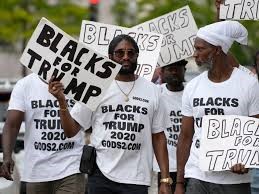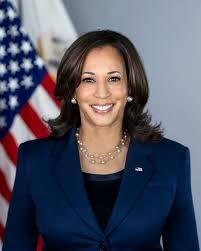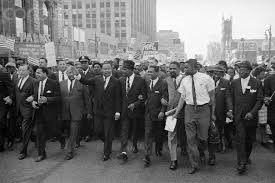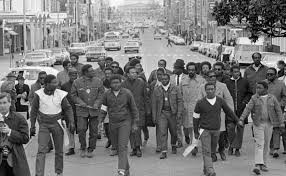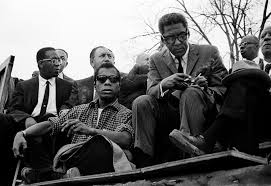Yesterday, while driving to the gym, I found myself at a red light behind a vehicle with vanity plates that read Trummp. Yes, whoever was driving the car was so committed to displaying their allegiance to Donald J. Trump that they were willing to appear illiterate to the entire world.
Although it is not easy to identify a driver through a tinted back window. Yet, I was sure of what I had seen. My eyes told my brain that the driver must have been a member of the 80s R&B group Full Force because he had on some oversized stunner shades. Texturized hair shaped into a box haircut like Big Daddy Kane wore through the ’80s and ’90s. This person would have made a quantum leap in time if my eyes had not deceived me.
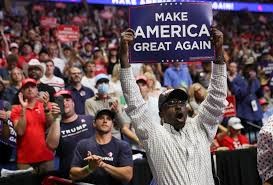
I was glad we both went into the same strip mall and appeared to be heading to the gym. I would soon have a clear view of who was driving the older model vehicle.
And you know what?
My eyes had not lied to me. The dark-skinned brother who emerged from the vehicle had on stunner shades, a very colorful shirt, far too tight pants, and enough gold to be mistaken for Mr. T. I recognized him as a regular at the gym and plotted to find an opening that would allow me to ask him if he were a Trump or is it Trummp supporter.
Although I rarely talk to anyone at the gym, I knew this brother spoke to any and everyone. Today would be the day that I engaged him.
In between sets, I learned he was Nigerian and a proud Trump supporter. He laughed at the mention of his misspelled license plate; the correct spelling was unavailable. I intently listened as he attempted to rationally explain his political position. He talked about economic benefits, his agreeance that all immigrants needed to be removed, the irony here was too much for me to stand, and his Christian duty. I attempted to delve into this brother’s logic by asking him why he thought most Blacks supported Harris and had been somewhat wedded to the Democratic Party since the 1934 off-year election of FDR’s first Presidential tenure.
I am unsure if I was more startled or saddened by his response.
In his opinion, the only reason Blacks supported Harris was because of Race, not substantive policy projections, and their refusal to abandon the Democratic Party was attributable to collective laziness. Such disrespect from Continental Africans has never sat well in my spirit, and I have rarely been able to resist the compulsion to hold my peace.
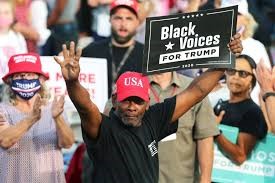
My counter to his ahistorical statements offended him. Anger was stitched across his face when I told him that his African ass would not be here had it not been for those lazy Blacks. He was bewildered by my assertion that morality, decency, and socially responsible individualism have rarely been applied, let alone monopolized by white Christians. Such values have been drilled into the minds of Blacks who attend any semblance of a legitimate Black church. I took the scenic route in explaining to him that he was a fool for throwing his support behind a lot of far-right racists whose language, antics, and intentions have forced traditional Republican Party members to abandon ship.
I closed my rant with the following request for all non-white Trump supporters. When those folks show you what they really think about you, stand there and take that disrespect, and you should not look for our assistance.
Rest assured that the so-called Christian Nationalist train that Trump is guiding is never late. It definitely never misses a stop when it comes to delivering unconscionable disrespect for non-Blacks who are not willing to openly accept them monopolizing anything worth having in this nation.
Dr. James Thomas Jones III
© Manhood, Race, and Culture 2024.
